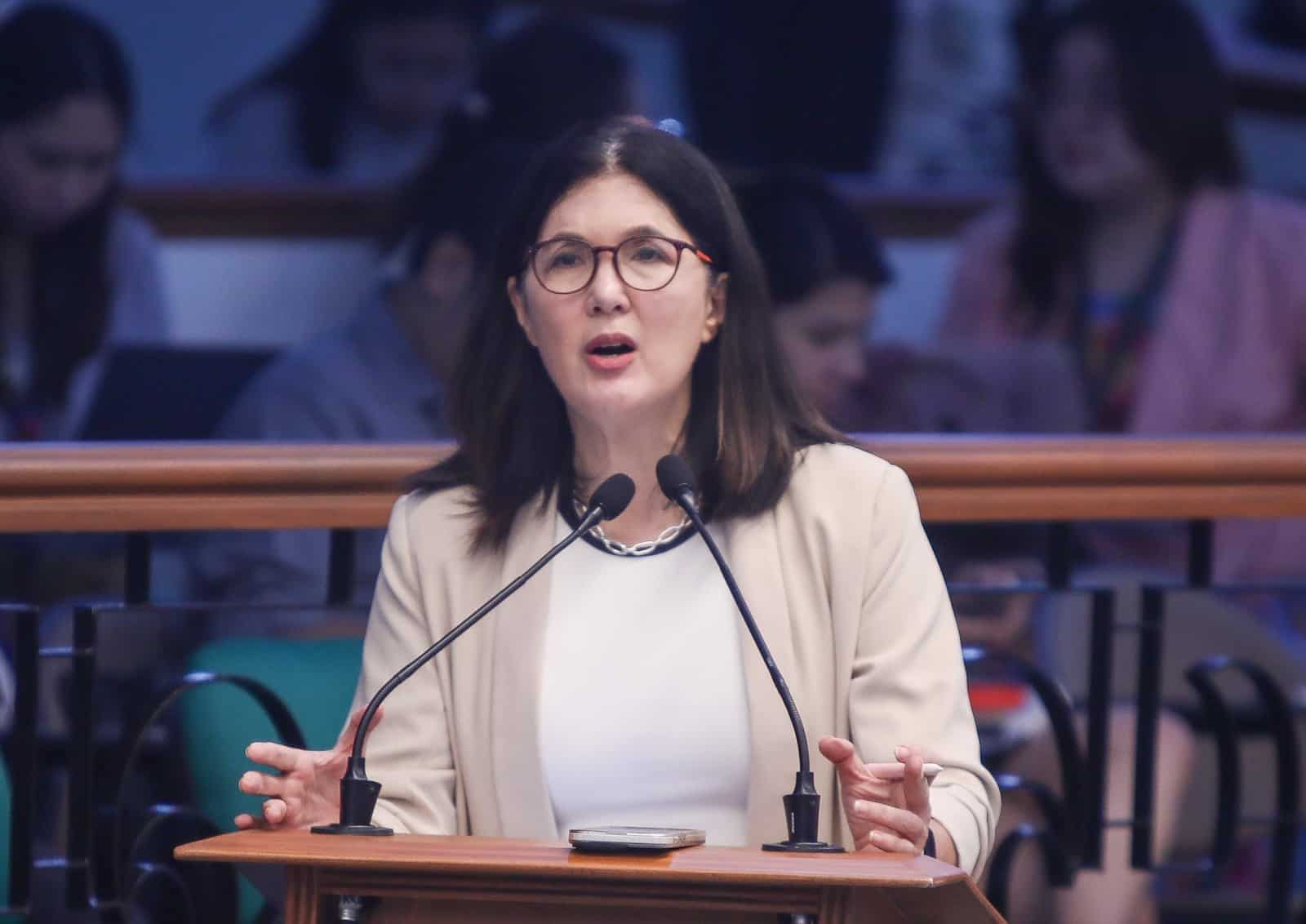MANILA, Philippines—The swift passage of Senate Bill No. 2793, the proposed Philippine Natural Gas Development Act, would send the strongest signal to investors that there is natural gas waiting to be explored in the Philippines.
In the continuation of interpellation for the bill, Sen. Pia Cayetano, chairperson of the Senate energy committee, said enacting the proposed law would be like a giant billboard telling the world that the Philippines is open for investments in natural gas.
“It seeks to declare that the Philippines is open and will have very clearcut policies on natural gas, indigenous natural gas development, so that, in itself, is going to send the right signal,” said Cayetano in reply to questions by Sen. Aquilino “Koko” Pimentel III during interpellation.
The energy committee chair said the law would address investors’ queries whether the Philippines was ready to develop its indigenous gas resources and open to investments.
“I’m just talking about the declaration that we are open and the terms of business will be clearer,” Cayetano said.
She said this message would be loud for all investors, whether Filipino or foreign.
SB 2793, she said, would “promote awareness and create an environment that will open up opportunities for investors.”
She said the law would lead to renewed interest and efforts to explore the country’s indigenous gas and similar resources.
She said there’s been little done to legislate support for exploration of natural gas which peaked in the 1970s, when at least 150 wells had been drilled.
“This was where Malampaya was discovered,” Cayetano said.
She expressed lament that exploration efforts weakened after with only 11 wells drilled 20 years after the Malampaya discovery.
In 25 years, she added, only six wells have been drilled and none since 2019.
The Philippines, she said, effectively abandoned the exploration of existing natural gas resources.
SB 2793 seeks to fill the gaps in policies, framework, legal support and incentives for investors to revive the exploration of indigenous gas resources, she said. It gives the Philippines another chance to develop and use its own indigenous gas, she added.
“It’s an opportunity because let me emphasize, this is indigenous gas. It is found in the Philippines. It is owned by the Philippines,” she stressed.
The energy panel chairperson said enacting SB 2793 sends the signal that the country was serious in giving priority to tapping and using indigenous gas, which would significantly lower energy costs and boost energy security.
“Natural gas is called a transition fuel, and we have proof that there is, it’s available in the Philippines,” said Cayetano, who had inspected the Malampaya facilities recently as energy panel chairperson.
“So by passing this law, it’s like erecting a billboard on Edsa globally and tell them that the Philippines is prioritizing natural gas,” she said.
“If you are an expert in natural gas, you’re welcome to come here. We have good business opportunities,” she said.
Asked by Pimentel if the Philippines has natural gas locations, Cayetano listed several “most prospective basins.”
Service Contract No. 38 governing the Malampaya gas field has been extended by another 15 years.
Prime Energy, which leads the consortium operating Malampaya, had committed to drill two new wells to extend the gas field’s life which was projected to run dry in 2027.
Drilling would start next year on confirmed natural gas deposits near the existing Malampaya field.
